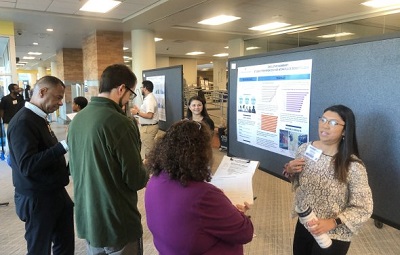HIT Me Baby, One More Time: Optimal Worker Incentive Strategies for Human Intelligence Tasks on Amazon Mechanical Turk
Description/Abstract/Artist Statement
The use of crowdsourced human intelligence tasks (HITs) is increasing in research and business, with Amazon Mechanical Turk (MTurk) being one of the most popular platforms connecting workers and requestors. Despite this popularity, data on optimal strategies to minimize attrition and maximize data quality is lacking. This study assesses the effects of different payment strategies on worker participation, speed, effort, and retention in HITs. MTurk workers were recruited to participate in a multi-wave study on personality, values, and behavior. Multiple payment strategies were developed with total payment for both phases ranging from $1.00 to $10.00 across experimental conditions. Results and implications will be discussed.
Presentation Type
Event
Disciplines
Psychology
Location
Learning Commons @ Perry Library Conference Room 1311
Start Date
2-13-2016 11:30 AM
End Date
2-13-2016 12:30 PM
Upload File
wf_no
HIT Me Baby, One More Time: Optimal Worker Incentive Strategies for Human Intelligence Tasks on Amazon Mechanical Turk
Learning Commons @ Perry Library Conference Room 1311
The use of crowdsourced human intelligence tasks (HITs) is increasing in research and business, with Amazon Mechanical Turk (MTurk) being one of the most popular platforms connecting workers and requestors. Despite this popularity, data on optimal strategies to minimize attrition and maximize data quality is lacking. This study assesses the effects of different payment strategies on worker participation, speed, effort, and retention in HITs. MTurk workers were recruited to participate in a multi-wave study on personality, values, and behavior. Multiple payment strategies were developed with total payment for both phases ranging from $1.00 to $10.00 across experimental conditions. Results and implications will be discussed.



Comments
Faculty Mentors: Dr. Richard N. Landers and Dr. Tara S. Behrend